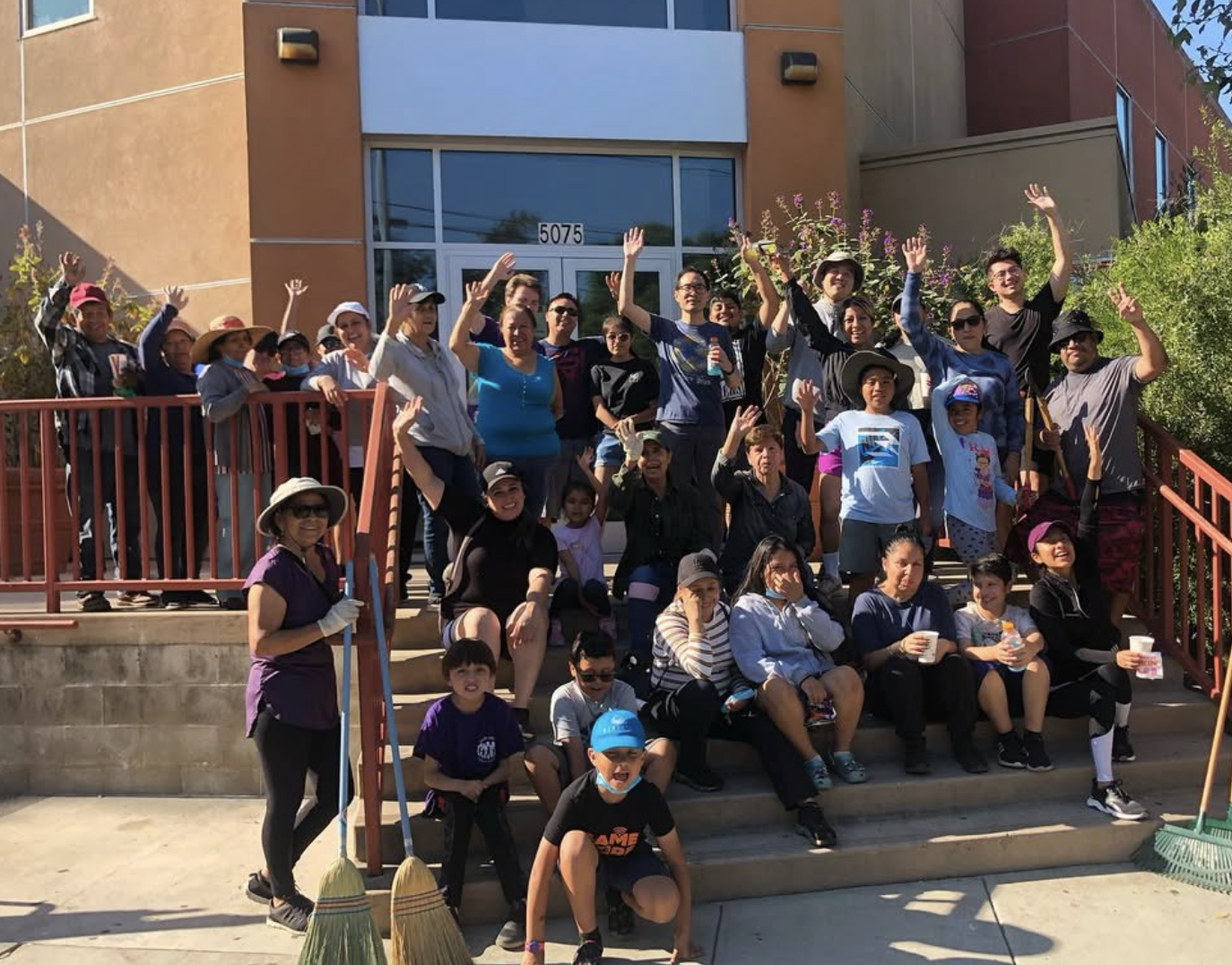At the end of Slauson Avenue, where the street dead-ends into the Mar Vista Family Center, the lights have gone out. The poles that once illuminated the small parking lot have been stripped of copper wire again and again, leaving the corner in darkness. Some nights, residents say it feels like a reflection of what is happening to their community, a neighborhood left in the shadows while families live in fear of ICE raids and deportations.
Inside the family center, the light is still on. For more than forty years, the Mar Vista Family Center has been a place where neighbors gather, children learn, and families find strength in each other. “We’ve been here for decades,” says CEO Lucia Diaz. “We’ve always told people, you are the eyes and the voice of your community. If we can learn to fix the lights on our street, we can learn to take leadership in our own lives too.”
From the beginning, Diaz has insisted that the center be for everyone. It is a space where families from every background come together and begin to break down the invisible walls that separate people even within the same neighborhood. “We have families from all over,” Diaz says. “Latino, Anglo, German, Asian, African American, working class, middle class. The goal is to make sure everyone feels that they belong here. This is not only for one community. It’s for all families who want to connect and build something better together.”
Those lessons are now being captured in a new kind of curriculum, called The Share Responsibility Model. Recognition as a Community-Defined Evidence Practice (CDEP), is not a workbook or a policy guide, but what Diaz calls a living curriculum for community empowerment. Developed over years of experience, it is based on dialogue, storytelling, and shared problem solving. “It’s not something you just read in a book,” she says. “It’s something you live. It’s experiential. It’s about learning by doing, how you organize your neighbors, how you build trust, how you create change together.”
The curriculum is more than a teaching tool. It is also a plan for the future. The center hopes to share it with other communities and use it as a foundation for long-term financial stability. “We’ve been completely privately funded,” Diaz explains. “We don’t get city or county money, so every year we have to start again, writing new grants, finding donors, doing events. The curriculum can help us sustain the center by sharing what we’ve built. It’s a model that works.”
That model feels especially urgent today. As ICE raids return to the Westside, the center has become a refuge for families afraid to go to work, pick up their children, or even leave their homes. “We see fear every day,” Diaz says. “So we keep the kids mentally and socially engaged, we bring parents together, we remind them they are not alone.” The center continues to provide food, clothing,a safe place for those who would like to be listened to and be surrounded by family and youth programs, including our new soccer partnerships with other organizations and soccer players, from LAFC and the LA Galaxy, to help residents feel connected and safe
City officials rarely show up at community meetings now, Diaz says, but neighbors still do. “People are learning to take responsibility for their streets and for each other,” she says. “It’s not just about lighting the parking lot. It’s about lighting the spirit of the community.”
In that sense, the broken streetlights are not only a problem to be fixed. They are part of a larger story. The darkness outside contrasts with the light that continues to grow inside, sustained by volunteers, parents, and children who refuse to give up. “Together, we can find the best solutions for our community,” Diaz says. “And that starts when we come together, no matter where we come from.”
For now, the Mar Vista Family Center continues month to month, uncertain about its funding but unwavering in its purpose.

